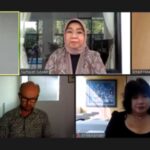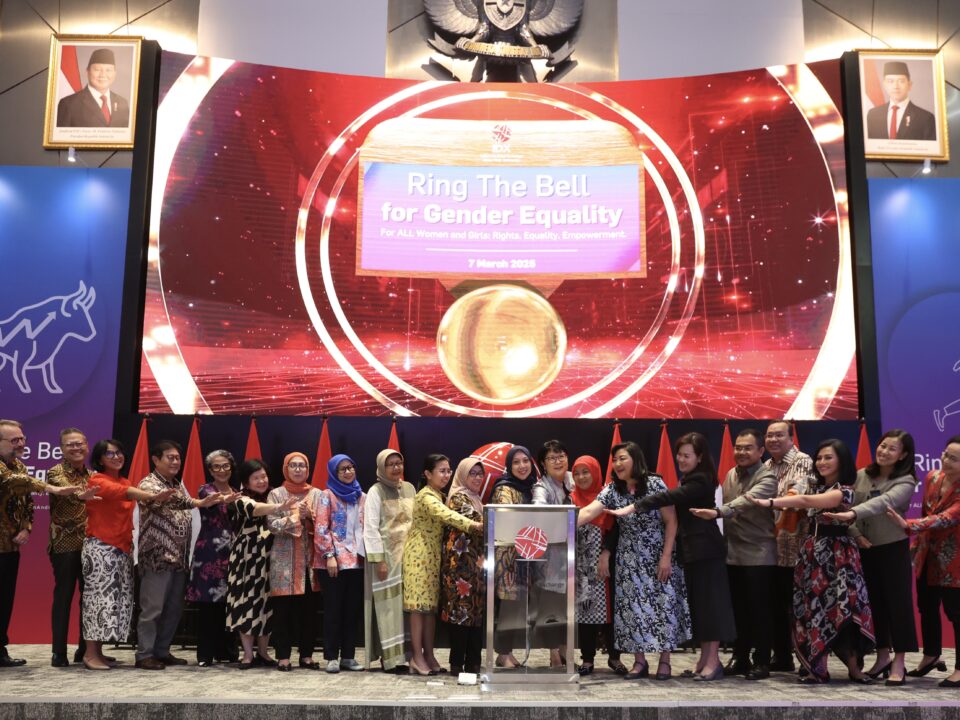
Women Take Over : Leading In A Day Event
December 24, 2023
Recognizing the Value of Gender Diversity in the Workplace: Higher Profitability, Productivity and Creativity
December 24, 2023Australia is the only country in the world that forms the body to track gender equality at work (Workplace Gender Equality – WGE) in the private sector, conducted by the Workplace Gender Equality Agency (WGEA), which is a legal entity Australian government. The agency is tasked with promoting and improving gender equality in the Australian workplace and working collaboratively with businesses that provide advice, practical tools, and education, to help improve their gender performance.
IBCWE collaborated with Investing In Women (IW) holding a Focus Group Discussion (FGD) on Wednesday, 5 February 2020 at Ayana MidPlaza Hotel Jakarta, with the theme “Tracking Workplace Gender Equality”. Appearing as the keynote speaker was Ms. Libby Lyons, director of WGEA.
In his presentation, Ms. Libby Lyons presented the Workplace Gender Equality Act 2012 and her experience for six years in tracking Gender equality practices in the private sector workplace in Australia, as well as how data drove changes in Australia. The results showed an increase in the company’s performance and encouraging Australian economic growth.
According to Ms. Libby, in the last two years, the issue of gender equality plays an important and growing role and is capable of becoming a global issue. In the view of government and business people, gender equality gained more attention, one of which focused on the issue of gender wage gaps. It’s important to understand the difference between equal pay and the gender pay gap. In equal pay, women and men play the same role or do different jobs, but they get the same wage. While the gender pay gap is more measuring the difference in wages received by employees of women and men, caused by various socio-economic factors to reduce the capacity and ability of women. Ms. Libby confirms the attempt to correct the wage gap is three times more effective if the outcome is reported to the executive or power bearer management.
FGD also socializes the Gender Equality Assessment Result and Strategies (GEARS) which is immediately applied in three Indonesian companies this year, namely Telkomtelstra, PT Bank BTPN Tbk, and Indonesia Stock Exchange. GEARS is a gender equality diagnostic tool that helps organizations analyze gender equality status, demonstrate gender equality gaps in organizations, and help with strategy development to overcome inequality. In addition to Indonesia, GEARS will also be tested in three other IW service countries, namely the Philippines, Vietnam, and Myanmar.
Executive Director of IBCWE, Maya Juwita assesses data collection methods conducted by Australia can be adapted and conducted in Indonesia through the mechanisms of a sustainability report. Related to OJK Regulation No. 51/POJK. 03/2017 on the implementation of sustainable finance for financial services institutions, issuers, and public companies, with the reporting of National Action Plan SDGs (Sustainable Development Goals) In particular Non-government, where Goals number 5 regarding gender equality is also a reported part, the Australian data collection method, becoming a reporting reference in Indonesia.
Different from EDGE certification, this tool serves as an assessment and does not provide certification. However, the assessment results are expected to be the first step for companies, organizations, and agencies in Indonesia to conduct a policy transformation that has a gender perspective.
GEARS differentiated into 3 stages. In the first stage, GEARS Level 1 is carried out simultaneously between IBCWE and the company’s HR team, which takes approximately 30 days due to the evidence collection time consuming up to 30 days. In the second stage, GEARS Level 2 will involve employee perception. Not only does the company collect data, but the company also wants to know what kind of employee perception with gender equality is already in the enterprise. This Level will take up to 60-90 working days.
The third stage is an EDGE certification that has been conducted by 8 companies in Indonesia. GEARS is useful for setting up a company to be certified. Considering the assessment time is long enough, IBCWE has the target so that companies in Indonesia can be directly at level 2 or level 3 and jump over Level 1, to show the position of Indonesia in the international world.
Besides attended by business people, FGD also attended by the Government that represented The Coordinating Ministry for Human Development and Cultural Affairs and The Ministry of Finance. Deputy Coordination of Protection of Women and Children, Coordinating Ministry for Human Development and Cultural Affairs (Kemenko PMK), Ghafur Dharmaputra, emphasized gender equality began with mutual support and sharing of roles, burdens, and duties, with equal obligations between men and women. Gender equality is closely related to increased family resilience. Ghafur will also continue to encourage the ratification of the Gender equality BILL.
In line with Ghafur, Inspector General of the Ministry of Finance, Sumiyati, asserted, the Ministry of Finance has a high commitment to building gender equality in Indonesia. The commitment is poured in the strategic plan of the Ministry of Finance and immediately poured out in regulation of the Minister of finance governing about budgeting, which requires the Ministry/agency to prepare a budget that gender responses. The Ministry of Finance will also continue to control the gender equality program in Indonesia, as well as encourage all ministries/institutions to implement Gender-responsive planning and budgeting (PPRG).
A gender-equality Assessment is a concrete step in a company that wants to demonstrate how a company has become a part of the equality generation that realizes women’s rights. Assessment results will be the basis for determining the roadmap that directs the company to gender equality-based working conditions. This demonstrates the company’s commitment to continuously contribute to the economic empowerment of women.





